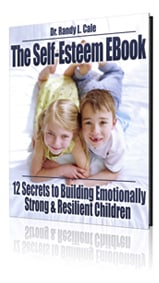This is more germane now than ever, given our lives under COVID. Parents are often describing home where children struggle with acting out, losing their temper, and treating family members poorly Often more miserable than happy, these children have parents ‘dancing’ continuously to avoid the next big eruption. It is misery, with the child at the helm of the ship.
Yet despite the misery, when the notion of child discipline is mentioned, I see pained and tortured looks on the faces of these suffering parents. It’s as if I had just mentioned a dirty word, or offended their values in some manner. Others openly hint that this is too ‘old school’ and not a fit for today’s world where we don’t ‘punish’ children.
Where does this perspective come from? One problem lies in some of the legitimate age-old implications of the word: discipline. For example, the Oxford dictionary online still offers this definition (as one of several), “The practice of training people to obey rules or a code of behavior, using punishment to correct disobedience.”
Interesting. This is often the interpretation that I find parents are reacting to. They sense that discipline is punishment oriented, and all about obedience. And honestly, if it were true, that would be enough to make me cringe. I would not be writing about discipline.
The Modern Child Discipline Approach
When I speak of child discipline, no part of that is focused on punishment. Instead, the essence of parent training focused on child discipline is more like the Dictionary.com definition, emphasizing ‘training.’
Here it is: “Training. Training to act in accordance with rules.”
Ahhh, that’s the secret. We all need to be trained if we are to acquire a set of skills, build a positive set of habits or even move consistently toward any goal.
For children, child discipline is really about child training…in a sense. We train kids to be polite. We train them to eat with their mouth closed. We train them to put their shoes on the right foot…and so on.
Some might want to argue that we teach them to do those things. And of course, that is true. However, teaching is focused on only one side of the coin. You can be teaching, and yet no one seems to be listening.
Teaching…and no one is listening? No one is learning?
Some of you know this feeling. Every day, repeating the same things over and over. You are apparently teaching endlessly, but no one is learning. You keep teaching them about manners, picking up, or taking more responsibility for their homework. Yet, only one half of the relationship is engaged in the teaching process, and it’s often just YOU!
And this is the real problem. If you focus only on the teaching side, the talking side, and giving out of information, we see that this is a slow, cumbersome process and many kids seem almost unable to grow and learn. With a focus on teaching, you can become a great teacher…but your challenging child may never even listen to those great lectures.
Why don’t words work better to change child behavior?
Words are great for teaching lessons in school, communicating what you love and enjoy, and great for just social connection. No problem there.
Words work very poorly for changing behavior. Thus, when we focus on the teaching approach, we mostly use words, and we see that this often translates to little change in behavior. Training and child discipline is focused on action more than words. Therefore, we get results from a training model over a teaching model.
Once we see that the secret here is to shift the focus from teaching to training, life will appear differently. No longer is it about better words or better communication, it’s about a better training program. In essence, it is about a child discipline program. With that in your mind, now your focus expands beyond a teaching model, and you can see that cooperation, chores, homework, respect, kindness, motivation, and many other desired outcomes can be nurtured through training.
I encourage you to see child discipline as your friend, and as your ally in training your child. Because with precise training, you can nurture good habits, and the likelihood of a successful, happy life.















